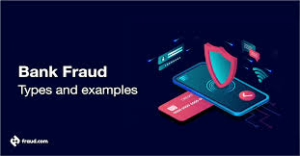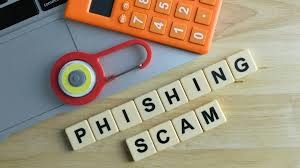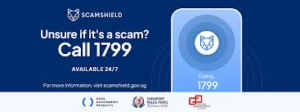Every day, victims in Singapore lose over S$2 million to scammers who prey on the most vulnerable. These deceitful individuals employ various tactics, ranging from elaborate cons and falsehoods to more insidious forms of social engineering that exploit human emotions and trust.
What sets today’s scammers apart from those of yesteryear is their access to an alarming amount of personal information about their targets. They are no longer just making random calls or sending generic emails; they often possess sensitive data that can include everything from your NRIC number to your home address. This private information, frequently obtained through extensive cyberattacks, is traded in the shadowy realms of the Internet, enabling scammers to craft their approaches with unnerving precision.
Image may be NSFW.
Clik here to view.
Consider this scenario: a scammer impersonates a police officer, confidently reciting your identification number, your home address, and perhaps even details about your employer or bank. Such specific knowledge immediately captures your attention far more effectively than a faceless caller who knows nothing about you. The chilling reality is that you have little control over when or how your personal data might be compromised—whether through a breach at a bank or a lapse at a government agency. Consequently, it’s prudent to assume that much of your private information—especially those details that tend to remain constant, like your name, phone number, and address—may already be exposed.
Image may be NSFW.
Clik here to view.
This situation underscores the necessity of safeguarding critical components of your digital identity. These elements are gateways to essential transactions, such as transferring money or accessing services. Here are three vital areas where you should focus your security efforts:
1. Singpass
In the vibrant city-state of Singapore, where modernity intertwines with tradition, there lies a powerful digital tool known as Singpass. For those who reside here, it is more than just a digital identity; it serves as the key that unlocks a world of transactions—be it with government bodies, banks, insurance firms, or a myriad of other services.
Imagine this: Singpass is akin to a prized possession, one that requires vigilant safeguarding. If it were to fall into the hands of malicious individuals, they could easily usurp your digital persona. The implications are daunting; with access to your Singpass, a nefarious actor could alter your registered address and apply for various financial products, such as credit cards, redirecting all correspondence to their newly claimed residence.
What makes Singpass even more integral to your daily life is its function as a digital token. Picture using it to log into your bank account and confirm transactions with just a touch on your phone. It’s not merely about convenience; it’s also about security in handling sensitive financial matters. As an added layer of utility, you can showcase your digital ID card via the Singpass app when participating in the upcoming general election—another testament to its significance.
Image may be NSFW.
Clik here to view.
However, wielding such power comes with the responsibility of robust security measures. Setting up your Singpass account involves more than just creating a username and password; it requires two-factor authentication through SMS and email, along with facial recognition for verification. While these steps enhance security, it’s essential to remain cautious. No system is impervious to breaches. Sharing your Singpass credentials or one-time passwords should be avoided at all costs—except perhaps with your children or a trustworthy relative assisting you in navigating this digital landscape.
If you often rely on the Singpass app on your smartphone, consider activating fingerprint logins. This method offers swifter access than typing out a password and adds an extra layer of protection.
In the vast realm of online transactions, every individual requires a vital piece of digital real estate—an email account intricately linked to their various online services. This particular email address, often referred to as the “root” email, serves as the central hub for communication regarding your most sensitive accounts.
Imagine, for instance, that you receive an urgent notification about a password reset request from your bank or a prompt to configure a banking application on your newly acquired smartphone. Such alerts are essential, yet they can also be misleading. If you did not initiate these requests, tread carefully; they may be a clever ruse crafted by cybercriminals.
The root email address acts as a formidable barrier against potential intruders. Without it, scammers typically find themselves at a significant disadvantage when attempting to infiltrate your digital life. As a result, this email account becomes a prime target for hackers intent on gaining unauthorized access.
2. Email address
For many individuals, this critical email address is likely associated with popular providers such as Gmail, Microsoft, or Yahoo. Cyber attackers often employ tactics like guessing passwords based on readily available personal information. Alarmingly, some passwords might even have been compromised in previous data breaches involving these service providers.
Image may be NSFW.
Clik here to view.
Enabling two-factor authentication (2FA) on these essential email accounts is crucial to fortifying your defences. This additional layer of security requires something beyond your password—such as a backup code—to gain entry.
It’s wise to meticulously record or print out these backup codes and store them in a secure offline location. Avoid leaving them out in plain sight, whether at home or in the office and definitely refrain from saving them on your mobile device or computer, where they could easily fall into the wrong hands.
Moreover, both Google and Microsoft offer authenticator applications—handy tools that provide a second-factor token for numerous other online services, including social media platforms.
Consider the implications: if you were to lose access to your root Google or Microsoft email accounts, you could potentially find yourself locked out of a myriad of interconnected digital accounts. Reclaiming access may prove to be an arduous journey filled with obstacles and frustration. Therefore, safeguarding this email account is not merely advisable; it is imperative. Protect it with vigilance and care!
3. The Perils of Losing Your Mobile Phone
In today’s fast-paced world, the thought of misplacing your mobile phone can be more daunting than the loss of your wallet. With a wallet, you have the option to swiftly contact your credit card provider to halt transactions and file a police report to obtain a new national ID. But when it comes to your phone, the stakes are considerably higher.
Image may be NSFW.
Clik here to view.
Imagine this: not only have you physically misplaced your device, but it has also fallen into the wrong virtual hands. The moment you inadvertently install a harmful application—perhaps lured by a tempting discount from a QR code or an enticing Facebook ad—you might unknowingly hand over control of your phone to cyber criminals.
Once they seize control, these hackers can delve into virtually every aspect of your device. Suppose you happen to accept prompts asking for password changes or authorize transactions without realizing the consequences. In that case, you are effectively handing them unrestricted access to your financial assets and personal information. This is how many individuals find themselves victims of scams, losing their entire retirement savings in an instant.
Your mobile phone functions as a digital wallet, so it is imperative that it remains free from malicious software. It serves as a gateway to your bank accounts and acts as a crucial token for facilitating various online transactions.
Allowing cybercriminals access to your phone—be it through a deceptive phone call or a malware-laden download—is akin to withdrawing cash from an ATM and handing it directly to thieves waiting nearby.
So, how can you safeguard your mobile device? Thankfully, modern smartphones come equipped with numerous built-in security features. However, it is equally vital to refrain from downloading applications from unofficial sources that exist outside the recognized Google Play or Apple App Store.
Additionally, remain cautious about scanning suspicious QR codes and avoid clicking on links sent via SMS or WhatsApp, especially those leading to websites requesting your sensitive credentials.
To enhance your protection, consider downloading the ScamShield app offered by the Singapore government. This valuable tool helps filter out potential scam threats across various platforms, including WhatsApp messages, websites, SMS texts, and phone calls.
Yet, it is essential to remember that no method is entirely foolproof. Remaining vigilant and informed is your best defence against the ever-evolving landscape of digital threats.
4. No absolute security
Image may be NSFW.
Clik here to view.
In the ever-evolving landscape of technology, the notion of a foolproof defence against cyber attacks and scams remains an elusive dream. As we delve deeper into the digital age, it becomes increasingly clear that while complete immunity is unattainable, we can certainly take measures to mitigate risks.
Consider the insidious rise of deepfakes—a chilling innovation designed to manipulate and deceive. Imagine receiving a call that seems to come from your boss or a close family member urgently requesting you to transfer money. This alarming scenario is becoming more common, presenting a significant challenge for our interconnected society.
However, retreating from the digital world entirely would be misguided. Instead of unplugging and shying away from online transactions, it is imperative to fortify the gateways to your digital existence. Focus on three essential elements: your national digital ID—like Singpass—your primary email account, and your mobile device. By enhancing the security of these critical access points, you can significantly diminish the likelihood of falling prey to the increasing wave of scams that target unsuspecting users.
Embracing proactive security measures not only empowers you but also strengthens the fabric of our digital community against those who seek to exploit its vulnerabilities. After all, in this age of rapid technological advancement, vigilance and preparation are our best defences.
Maxthon: Your Guide Through the Digital Frontier
In the ever-evolving realm of the internet, embarking on an online journey can often feel akin to exploring a vast and thrilling wilderness. To traverse this expansive digital world with confidence and security, it is essential to have a reliable web browser at your side.
Enter Maxthon, an extraordinary option especially tailored for Windows 11 users. This browser is perfectly aligned with the latest features of this advanced operating system, enabling users to tap into a wealth of innovative tools crafted to enrich their online experiences.
Maxthon’s Compatibility with Windows 11
At the core of Maxthon’s mission is a deep-seated dedication to ensuring user safety and privacy. The browser comes equipped with a suite of robust privacy features, allowing users to navigate the internet freely while safeguarding their personal information from unwanted scrutiny.
Image may be NSFW.
Clik here to view.
What truly distinguishes Maxthon from its competitors is its unwavering commitment to providing powerful features entirely free of charge. The user-friendly interface is designed for everyone, granting access to the essential tools needed to confidently explore the intricate web of information and connections that the internet offers.
With Maxthon accompanying you on your digital adventures, you are not merely browsing; you are embarking on a secure and enriching journey through the vast expanse of the online world.
The post Discover How Scammers May Already Know You And Act Now appeared first on Maxthon | Privacy Private Browser.